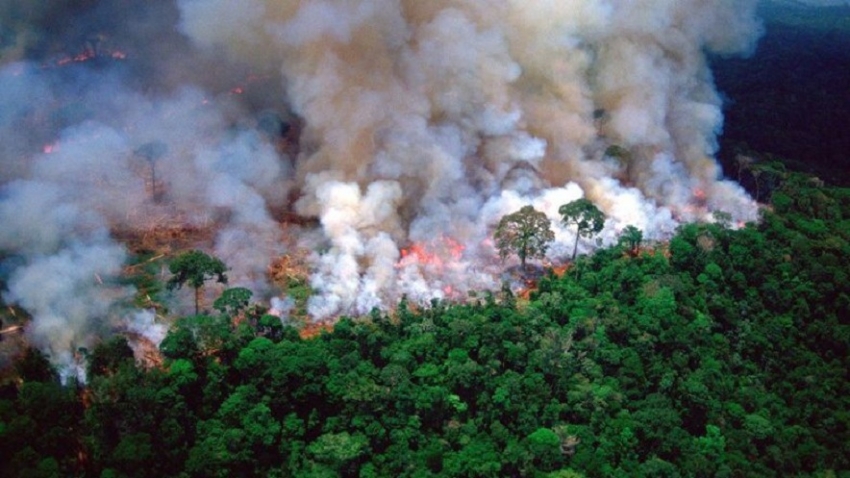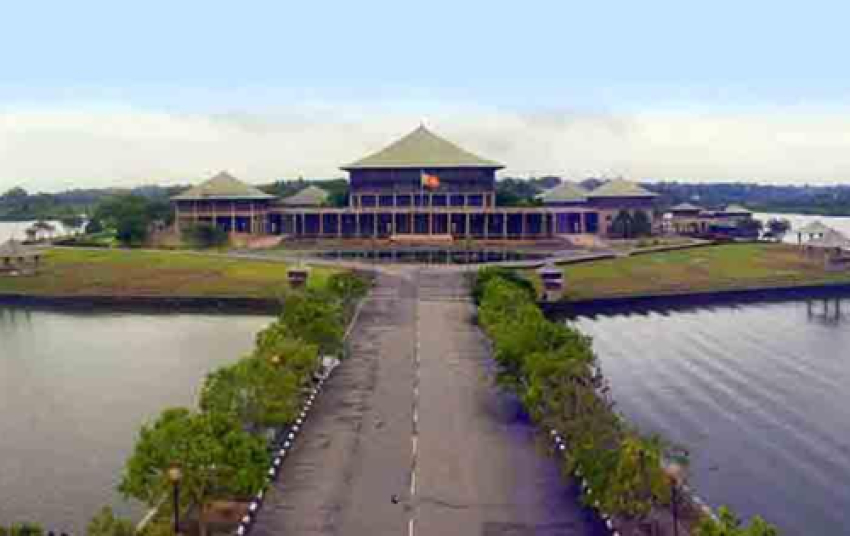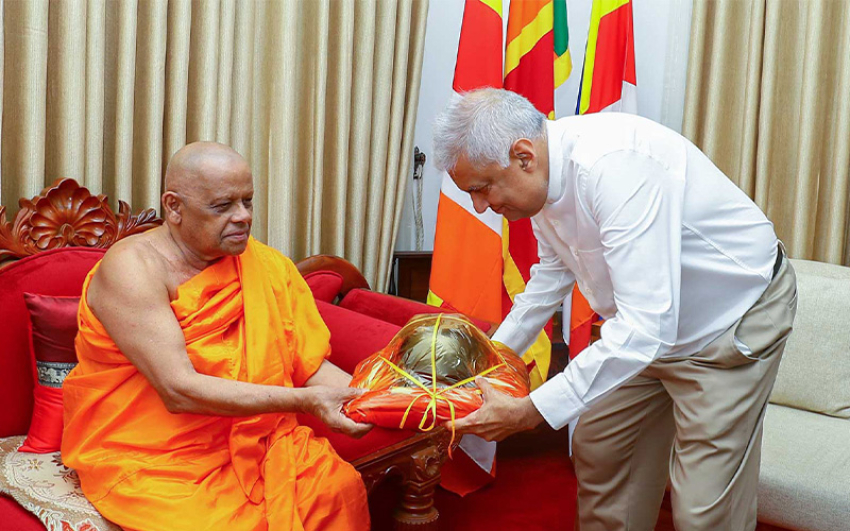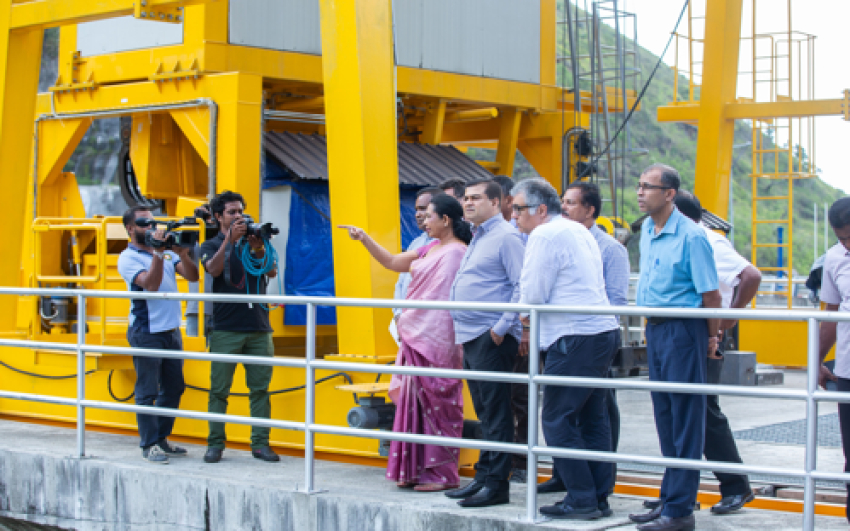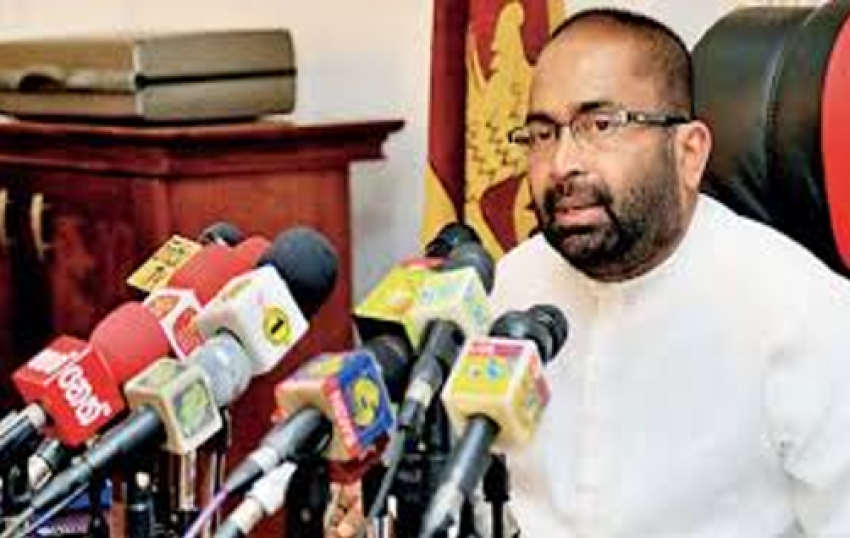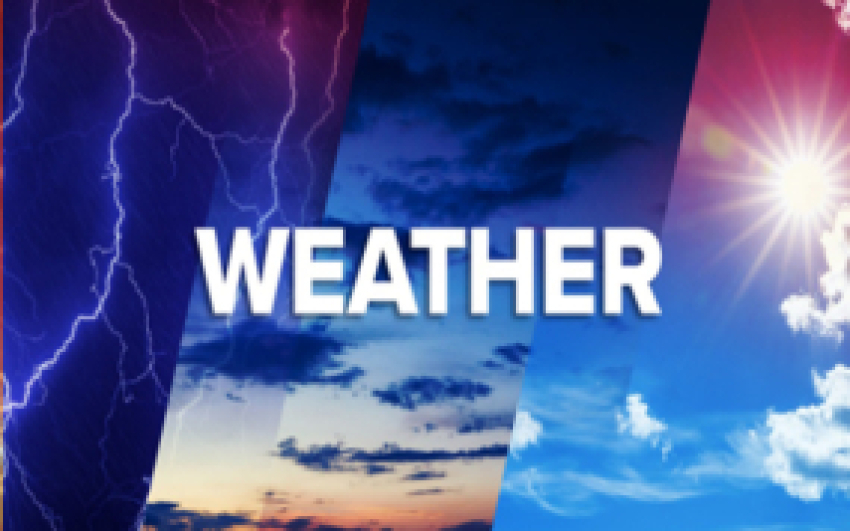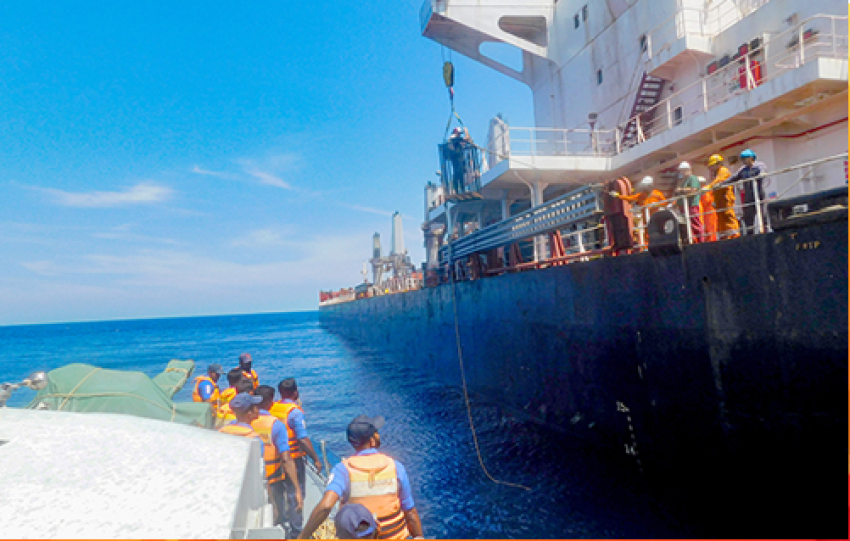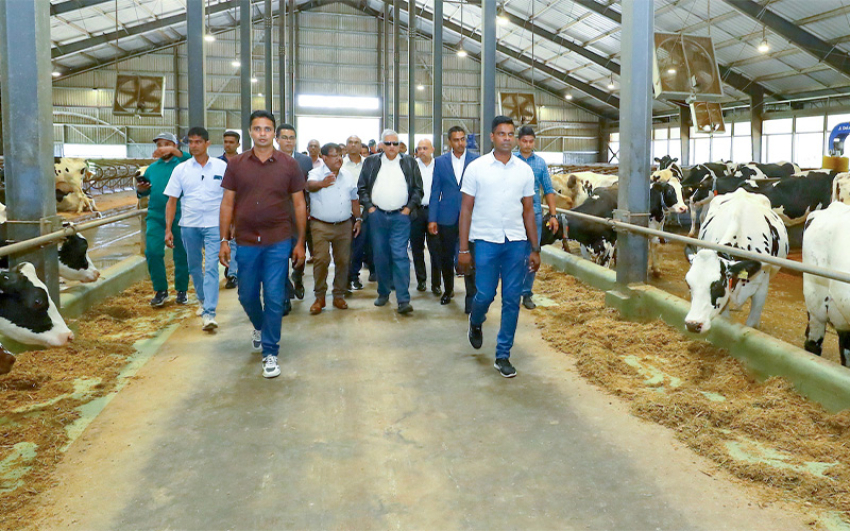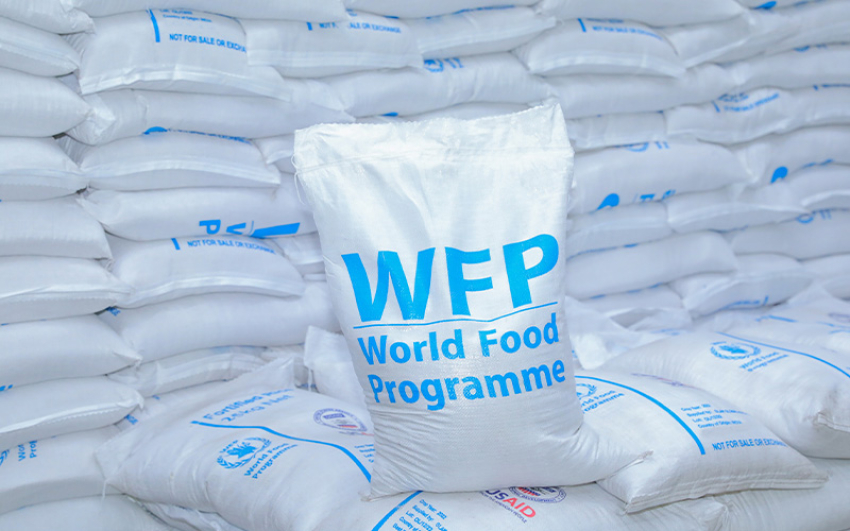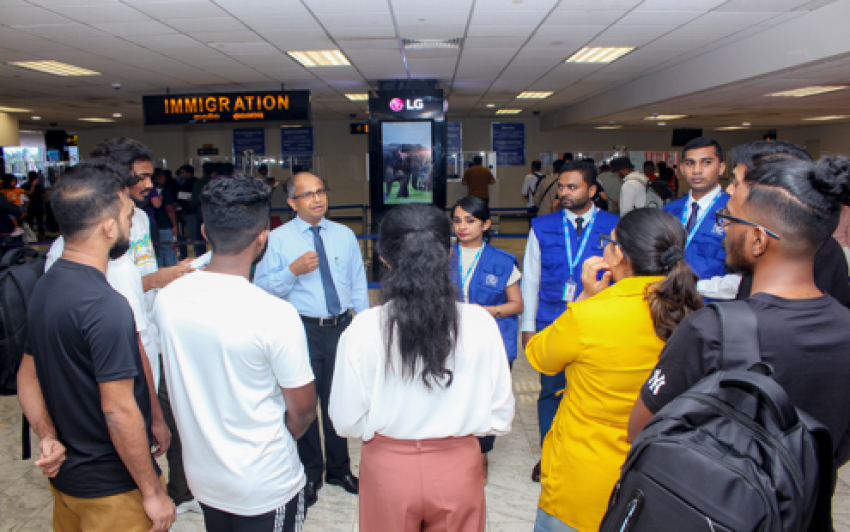The record number of fires in Brazil's Amazon rainforest has coincided with a sharp drop in fines for environmental violations, BBC analysis has found.Official data from Brazil's environment agency shows fines from January to 23 August dropped almost a third compared with the same period last year.At the same time, the number of fires burning in Brazil has increased by 84%.It is not known how many of these fires have been set deliberately, but critics have accused President Jair Bolsonaro's administration of "green lighting" the destruction of the rainforest through a culture of impunity.
Mr Bolsonaro has sent in the military to help put out the fires after coming under pressure from the international community, saying he wanted to "help protect" the Amazon.The largest rainforest in the world, the Amazon is a vital carbon store that slows down the pace of global warming. It is known as the "lungs of the world" and is home to about three million species of plants and animals, and one million indigenous people.
This year saw the lowest number of fines handed out by the agency in a decade (in the period between January and August)
Between 1 January and 23 August 2019, the total number of fines handed out was 6,895Ibama handed out 9,771 fines during the same period in 2018: a drop of 29.4%
The total number of fines relating to "flora" - which includes deforestation and burning - dropped from 4,138 to 2,535 over the same period
And in the nine states that make up the Brazilian Amazon, the drop in fines relating to flora dropped from 2,817 to 1,627
Why has there been a drop? Neither Ibama nor the ministry of the environment answered the BBC's queries about the figures. ngélica de Almeida, a professor of environmental law who has defended clients over unfair fines, suggested to BBC Brasil that the figures for previous years could have reflected a culture of over-fining, in order to meet goals.However, others have pointed the finger directly at Mr Bolsonaro, who has scorned environmental activists and declared his support for clearing areas of the Amazon for agriculture and mining.Elisabeth Uema, who retired from Ibama last year, said it was clear even before Mr Bolsonaro was elected that he did not like Ibama. During his campaign, he pledged to limit fines for damaging the rainforest and to weaken the influence of the environmental agency.
The message was further underlined in April when Mr Bolsonaro ordered an investigation into officials who burned tractors and trucks belonging to loggers who were allegedly involved in illegal activities in the Jamari National Forest. This was a long-held policy seen as a deterrent against illegal loggers.The agency's work, she said, had also been hampered by the fact that just eight of its 27 offices across the country now had a permanent head.Media captionMembers of Brazil's indigenous Mura tribe vow to defend their land"The usual inspections, which had been planned since 2018, are happening. But little beyond that," Ms Uema, now the executive secretary of Ascema Nacional, the body representing Ibama employees, told BBC Brasil.Critics of the Bolsonaro administration insist the drop in fines does not mean fewer crimes against the environment are being committed.
The decline in the number of environmental fines at a time when Brazil has seen a spike in deforestation does not seem a coincidence to many.During last year's presidential race, Mr Bolsonaro vowed to open up the Amazon for commercial activity. When he was sworn in, he stayed true to his word.
Why the Amazon rainforest helps fight climate changeMany of his critics say that Mr Bolsonaro operates a double standard when it comes to addressing environmental crimes, most of which remain unpunished. After all, the president promised a tough stance on criminal activity.Now, in face of national and international pressure, Mr Bolsonaro appears to have changed his tone and finally adopted measures to battle the fires.But he still hasn't acknowledged the link between the fires and the increase in deforestation in Brazil this year. And in a televised address on Friday he reinforced his plans to bring "economic dynamism" to the Amazon.The question now is whether Mr Bolsonaro's recent moves in fighting the fires will be accompanied by a consistent change in his environmental policies.
Why does this matter?Environmental activists have drawn links between Mr Bolsonaro's attitudes towards the environment and the recent surge in the number of fires in the Amazon rainforest.Satellite data published by the National Institute for Space Research (Inpe) has shown an increase of 85% this year in fires across Brazil, most of them in the Amazon region.Mr Bolsonaro initially brushed it off, arguing that it was the season of the "queimada", when farmers burn land to clear it before planting.The president has also previously questioned data from Brazil's National Space Research Institute which showed an 88% increase in deforestation in June compared with the same month a year ago.
Amazon: Lungs of the planet
But Inpe has noted that the number of fires is not in line with those normally reported during the dry season.Wildfires often occur in the dry season in Brazil but they are also deliberately started in efforts to illegally deforest land for cattle ranching.Whether there will now be a spike in fines remains to be seen.What is being done to fight the fires?
On Friday, Mr Bolsonaro confirmed that he had authorised the armed forces to help fight the fires. "I've learned as a military man to love the Amazon forest and I want to help protect it," he said.The decree itself was fairly vague in its wording, but specified that the military would be deployed to nature reserves, indigenous lands and border areas in the region.Brazil's defence minister said a helicopter and two airplanes had already been deployed to the Amazon to help identify fire outbreaks and to carry equipment and military personnel.
The announcement came after the international community began to exert pressure on Mr Bolsonaro.German Chancellor Angela Merkel, French President Emmanuel Macron and UK Prime Minister Boris Johnson have called the fires an international crisis.France and Ireland have also said they will not ratify a large trade deal with South American nations and Finland's finance minister has called on the EU to consider banning Brazilian beef imports.Both Ms Merkel and Mr Macron said the issue must be discussed at this weekend's G7 summit in Biarritz, France.
The Amazon in Brazil is on fire - how bad is it?Thousands of fires are ravaging the Amazon rainforest in Brazil - the most intense blazes for almost a decade. The northern states of Roraima, Acre, Rondônia and Amazonas have been particularly badly affected.However, images purported to be of the fires - including some shared under the hashtag #PrayforAmazonia - have been shown to be decades old or not even in Brazil.
So what's actually happening and how bad are the fires?
There have been a lot of fires this yearBrazil has seen a record number of fires in 2019, Brazilian space agency data suggests.The National Institute for Space Research (Inpe) says its satellite data shows an 85% increase on the same period in 2018.The official figures show more than 75,000 forest fires were recorded in Brazil in the first eight months of the year - the highest number since 2013. That compares with 40,000 in the same period in 2018.Forest fires are common in the Amazon during the dry season, which runs from July to October. They can be caused by naturally occurring events, such as by lightning strikes, but also by farmers and loggers clearing land for crops or grazing.Activists say the anti-environment rhetoric of Brazilian President Jair Bolsonaro has encouraged such tree-clearing activities.
In response, Mr Bolsonaro, a long-time climate change sceptic, accused non-governmental organisations of starting the fires themselves to damage his government's image.He later said the government lacked the resources to fight the flames.
Amazon fires a global crisis, says Macron'Football pitch' of Amazon forest lost every minuteThe north of Brazil has been badly affectedMost of the worst-affected regions are in the north of the country.Roraima, Acre, Rondônia and Amazonas all saw a large percentage increase in fires when compared with the average across the last four years (2015-2018).Roraima saw a 141% increase, Acre 138%, Rondônia 115% and Amazonas 81%. Mato Grosso do Sul, further south, saw a 114% increase.Amazonas, the largest state in Brazil, has declared a state of emergency.Brazil fires prompt 'prayers' for Amazon rainforestBrazil's Bolsonaro dismisses deforestation data as 'lies'
The fires are emitting large amounts of smoke and carbonPlumes of smoke from the fires have spread across the Amazon region and beyond.According to the Copernicus Atmosphere Monitoring Service (Cams), a part of the European Union's Earth observation programme, the smoke has been travelling as far as the Atlantic coast.
It has even caused skies to darken in São Paulo - more than 2,000 miles (3,200km) away.Some of the fires, such as this one in Mato Grosso, cover a number of acres
The fires have been releasing a large amount of carbon dioxide, the equivalent of 228 megatonnes so far this year, according to Cams, the highest since 2010.They are also emitting carbon monoxide - a gas released when wood is burned and does not have much access to oxygen.Maps from Cams show this carbon monoxide - toxic at high levels - being carried beyond South America's coastlines.
The Amazon basin - home to about three million species of plants and animals, and one million indigenous people - is crucial to regulating global warming, with its forests absorbing millions of tonnes of carbon emissions every year.But when trees are cut or burned, the carbon they are storing is released into the atmosphere and the rainforest's capacity to absorb carbon emissions is reduced.The Amazon Environmental Research Institute (Ipam) has stated the recent increase in the number of fires in the Amazon is directly related to deliberate deforestation.While the exact scale of deforestation in the rainforest will only be certain when 2019 figures are published at the end of the year, preliminary data suggests a significant rise.
The National Institute for Space Research (Inpe) tracks suspected deforestation in real-time using satellite data, sending out alerts to flag areas that may have been cleared.Over 10,000 alerts were sent out in July alone.Deforestation was 278% higher in July 2019 than in July 2018, according to Inpe.How bad were fires in the previous years?While the number of fires in Brazil is at its highest level for almost a decade, the data suggests that Brazil - and the wider Amazon region - may have experienced more intense burning in the past.An analysis of NASA satellite data last week indicated that the total fire activity in 2019 across the Amazon, not just Brazil, is close to the average when compared with a longer 15 year period.Looking specifically at Brazil, figures from Cams going back to 2003 show that the total CO2 equivalent emissions, used to measure of the amount and intensity of fire activity, are at their highest since 2010.But according to the data, emissions in Brazil were higher in the mid-2000s, as the chart below indicates.Other countries have also been affected by fires
A number of other countries in the Amazon basin - an area spanning 7.4m sq km (2.9m sq miles) - have also seen a high number of fires this year.Venezuela has experienced the second-highest number, with more than 26,000 fires, with Bolivia coming in third, with more than 17,000.The Bolivian government has hired a fire-fighting airtanker to help extinguish fires in the east of the country.Extra emergency workers have also been sent to the region, and sanctuaries are being set up for animals escaping the flames.
EU and Mercosur agree huge trade deal after 20-year talks
28 June 2019
Share this with Facebook Share this with Messenger Share this with Twitter Share this with Email Share
Image copyrightGETTY IMAGES
Image caption
Brazil is one of four countries in Mercosur
The EU and South American economic bloc Mercosur have clinched a huge trade deal after 20 years of negotiations.
EU Commission chief Jean-Claude Juncker said it was the EU's biggest deal to date and, at a time of trade tensions between the US and China, showed that "we stand for rules-based trade".
Brazil's President Jair Bolsonaro said it was "historic" and "one of the most important trade deals of all time".
Mercosur consists of Argentina, Brazil, Uruguay and Paraguay.
Venezuela is also a member but it was suspended in 2016 for failing to meet the group's basic standards.
The deal aims to cut or remove trade tariffs, making imported products cheaper for consumers while also boosting exports for companies on both sides.
It is set to create a market for goods and services covering nearly 800 million consumers, making it the largest in the world in terms of population.
Five things about the EU-Japan trade deal
What is Mercosur?
The two parties began negotiating in 1999 but talks accelerated after US President Donald Trump's election in 2016. As a result EU-US talks were frozen.
The EU has also concluded trade agreements with Canada, Mexico and Japan since Mr Trump's election.
However, the EU deal with Mercosur could see savings on tariffs that are four times as big as those made in the Japan deal, EU trade commissioner Cecilia Malmstrom said.
Narrow window to close the deal
Analysis by Daniel Gallas, South America business correspondent
It is no small feat to close such a complicated deal at a time when free trade is under attack globally. Protectionism is clearly on the rise - with Brexit and the trade war between China and the US.
The deal could significantly change the way Europeans do business in countries like Brazil - which has one of the world's most closed economies. High tariffs have historically kept European competitors at a disadvantage against national industries.
Similarly, South American farmers will finally gain access to European food markets.
Europeans and South Americans had a narrow window to close this deal, as elections in Argentina later this year could potentially shift the mood against free trade, as is happening in other parts of the world.
What is the reaction?
Ms Malmstrom said negotiations had begun 20 years ago to the day.
"They have been long negotiations - tough, difficult, and at least I have said many times 'we are almost there'. Now we are. This is a landmark agreement," Ms Malmstrom said.
She said it sent a strong message that both the EU and Mercosur were in favour of "open, sustainable and rules-based trade".
Speaking to reporters, Argentine Foreign Minister Jorge Faurie said Mercosur had hitherto been a "very closed commercial space" but that the deal with the EU sent a "very clear message about where we are going".
Argentina's Secretary of International Relations Horacio Reyser said it would boost GDP, create jobs and attract investment.
He tweeted a video of the moment the deal was confirmed.
Cattle farming is already the biggest driver of deforestation, Greenpeace says.
Critics say Mr Bolsonaro's plans to weaken environmental protections also threaten the Amazon.

